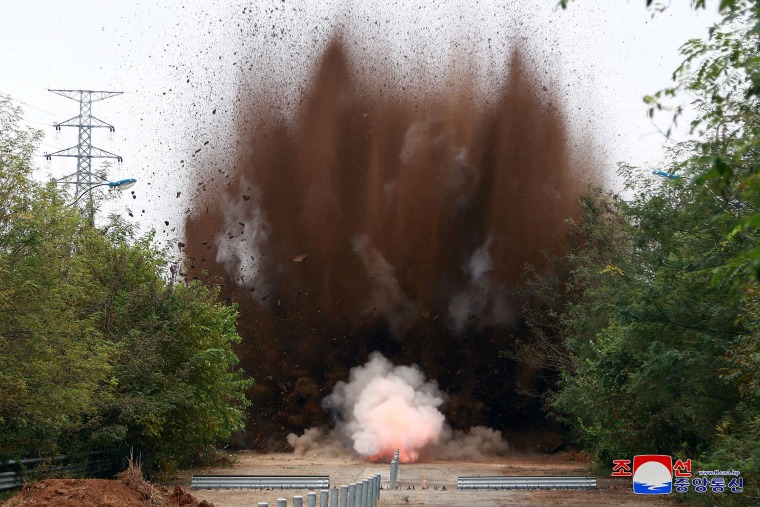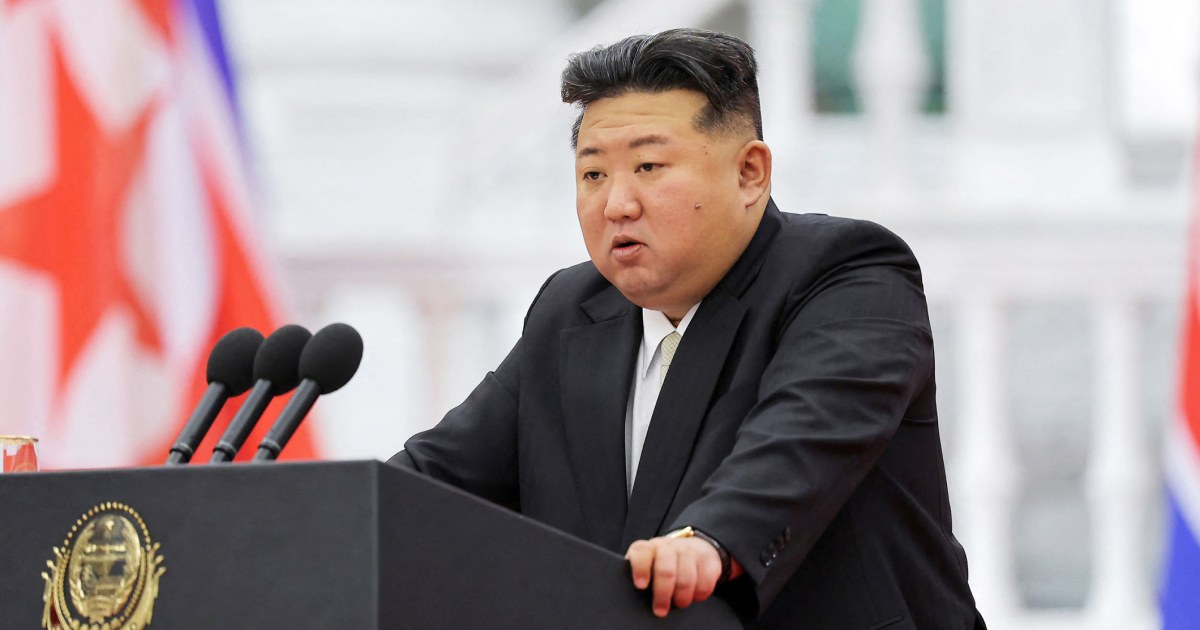SEOUL, South Korea — North Korea has designated South Korea a “hostile state,” its state media said Thursday, confirming that its national assembly had amended the constitution in line with leader Kim Jong Un’s vow to drop unification as a national goal.
The North’s KCNA news agency reported that the military had blasted sections of road and rail links with South Korea on Tuesday as a legitimate action against a hostile state as defined by the constitution.
Sixty-six yard sections of the road and railway on the North’s side of the border were now completely blocked as part of a “phased complete separation of its territory” from the South, it said.
“This is an inevitable and legitimate measure taken in keeping with the requirement of the DPRK Constitution which clearly defines the ROK as a hostile state,” KCNA said, using the North’s official name, the Democratic People’s Republic of Korea, and South Korea’s, the Republic of Korea.
KCNA cited a defense ministry spokesperson as saying the country would take further steps to “permanently fortify the closed southern border” but did not mention any other changes to the constitution that Kim had ordered.
A satellite image released by imagery company BlackSky and taken on Wednesday showed the road leading to the city of Kaesong in the North torn with a large gash on the pavement and surrounding area.
South Korea’s Unification Ministry, which handles ties with the North, said it “strongly condemns” the constitution change and South Korea’s characterization as a hostile state, and that it will not waver in its efforts toward peaceful reunification.
In January, Kim called for a constitutional amendment to erase unification as a goal in its ties with the South, accusing Seoul of colluding with the United States to seek the collapse of his communist regime and a clear definition of its territory.
North Korea’s Supreme People’s Assembly, which met over two days last week, had been expected to amend the constitution to officially designate South Korea as a separate country and a main enemy.
State media had not reported on such a move, which led to speculation that the change to the constitution had been postponed.
North Korea has previously announced summaries of amendments after several days of delay. Still, it was unusual that just one of several major changes that had been expected was revealed almost in passing, University of North Korean Studies President Yang Moo-jin said.
He said that as part of the constitutional change, the North was expected to redefine its territory in a manner that conflicts with the Northern Limit Line, which has been the de facto sea border since the end of the 1950-1953 Korean War.
“They are likely conscious of the extreme sensitivity of the matter of the west coast borderline,” he said, referring to waters that have been the scene of deadly clashes in the past.

Tensions between the rivals have been escalating since last year, with both sides declaring that an agreement signed in 2018 to ease military tension is no longer valid.
North Korea sharply intensified its hostile rhetoric in recent days, accusing the South of intruding on its airspace by flying drones and vowing retaliation.
South Korea’s government has declined to say whether its military or civilians flew the alleged drones.
The South’s military fired warning shots south of the border on Tuesday in response to the North’s detonations on roads and railways.
Pyongyang said last week it would cut off the inter-Korean roads and railways entirely and further fortify the areas on its side of the border as part of its push for a “two-state” system scrapping its longstanding goal of unification.

Leave a Reply